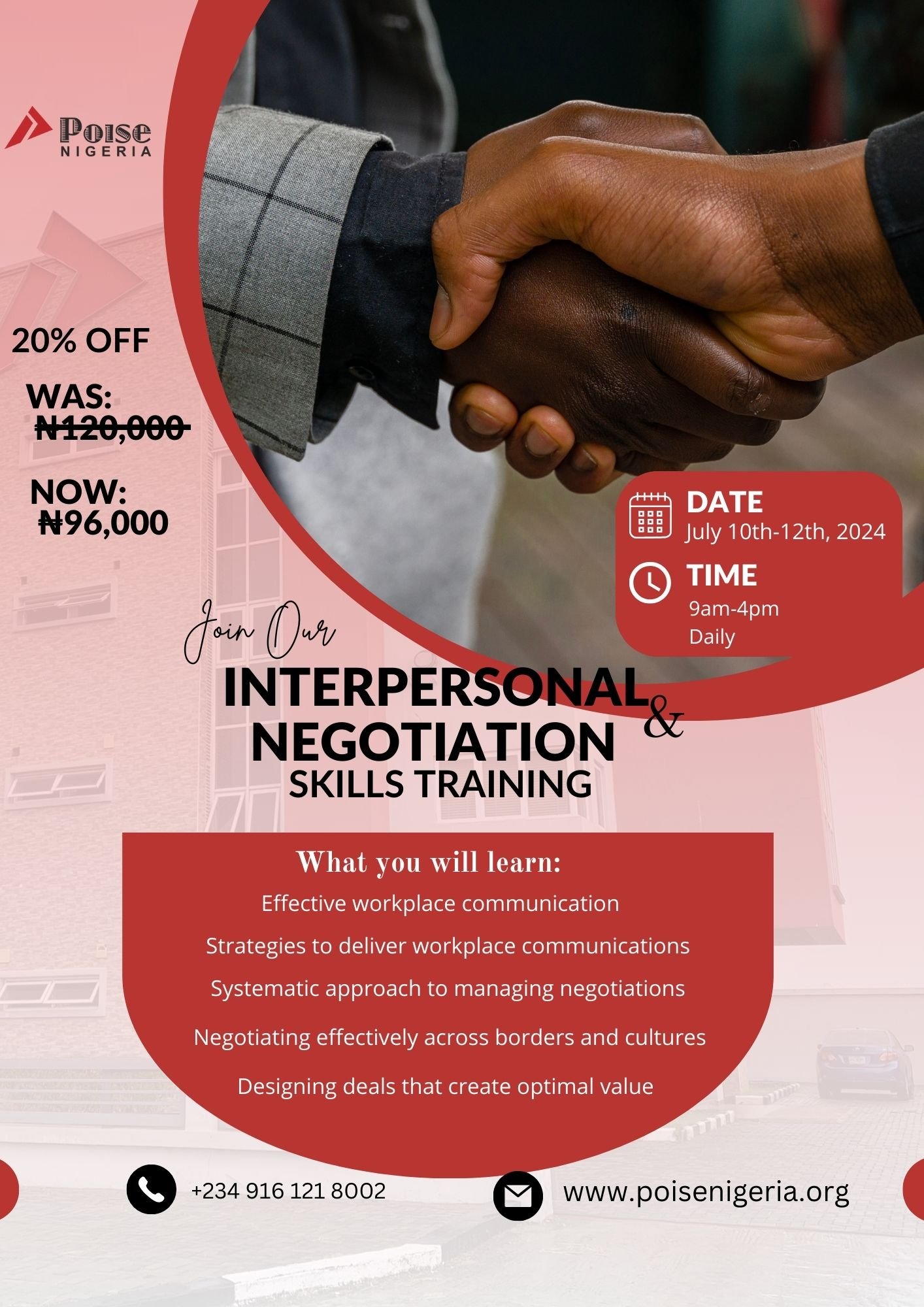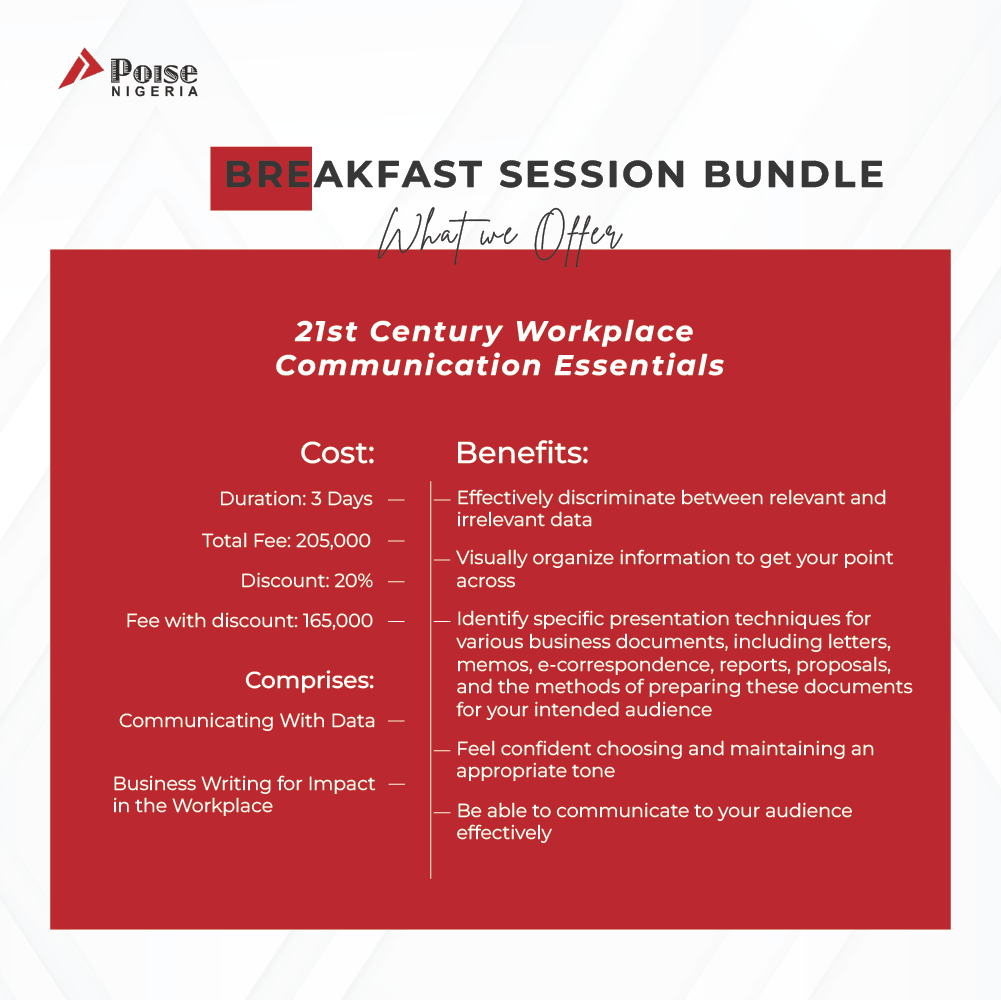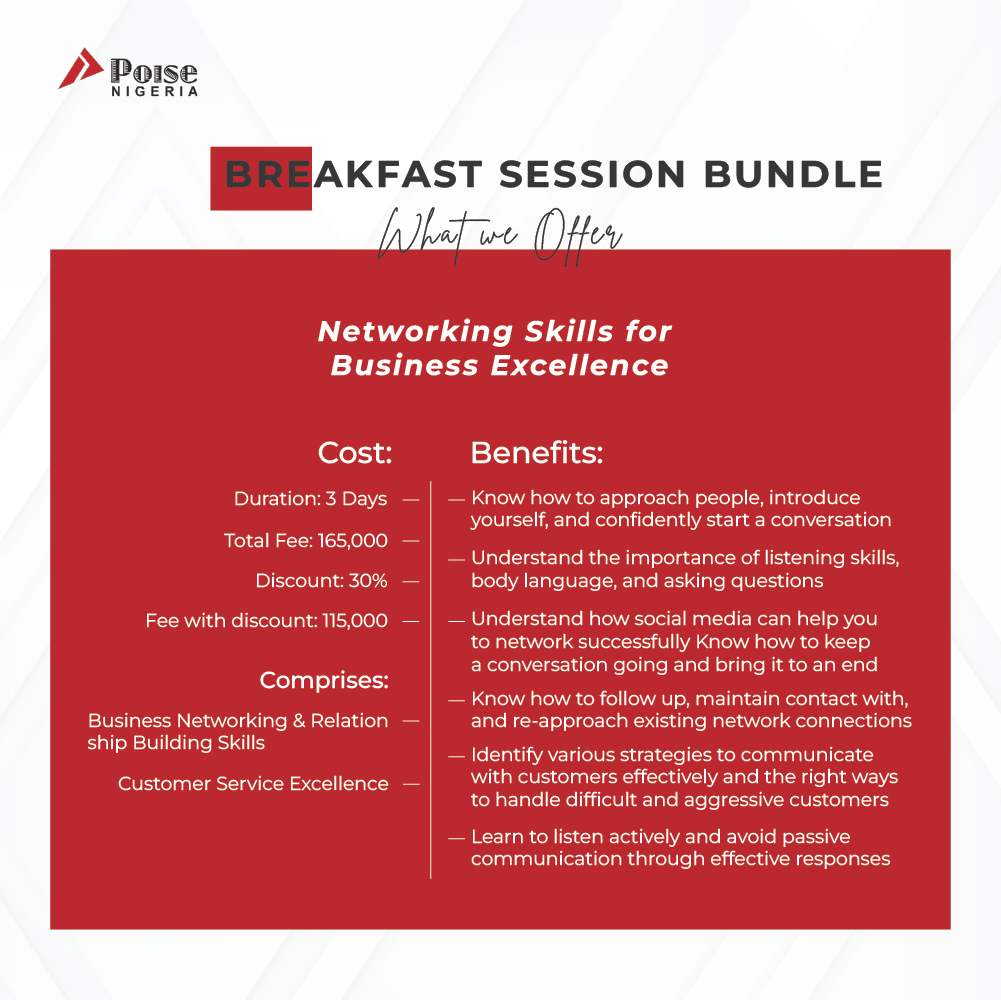6 secrets our Poise experts in Public Speaking and Presentation want you to know.
Public speaking and presentation are very vital skills in the 21st Century. Individuals with this skill stand a higher chance of being positively appraised and appreciated in their workplaces and life generally because, most times, they know what to say and when to say it.
Being a good presenter means overcoming your fear of public speaking and delivering impactful pitches and presentations. To be successful, you must display your thoughts and facts correctly if you wish to convey them to an audience. In addition, you must ensure that your presentations will linger in the minds of your audience long after they have left because this will indeed determine how effectively your audience understands your material and how likely they are to respond to your message.
A good presentation presents information logically and straightforwardly and keeps the audience interested. It does, however, require a long time and effort to become a good presenter, but there are techniques to improve your abilities. This post will teach you how to improve your public speaking abilities.
1. Be well-versed in your topic.
Nothing is more humiliating than failing to grasp your topic with adequate depth and authenticity before a small group of prospective investors or a large crowd. It’s preferable to stay in your seat or hand over the podium to someone else than face this embarrassment.
Before you take to the stage, do proper research on your topic and be well-grounded in the field of your presentation to avoid unnecessary hitches while presenting.
If you don’t know something, don’t try to impress the audience, as knowing your subject is half of the battle. If you know your topic well, the audience will accept you and feel more confident. You gain authority when you have knowledge. Note that your audience expects you to be wiser and more knowledgeable than they are. Otherwise, they may lose interest.
2. Practice, Practice, Practice.
Set up a session for yourself. Take it as an interview with a mean H.R. Make a list of the sharpest and meanest questions you can think of and ask them to yourself. Don’t be a softie. Please don’t take it easy on yourself. Be ruthless. Be harsh. Make a grade for yourself. Be your own worst enemy. Shut the door to your office so no one can hear you, and drill yourself into the topic you’ll be presenting. Then look up the answers to these questions if you don’t know them.
Your audience will ask you questions, some of them may be cynical questions meant to test your knowledge of the topic you are talking about, and you should always have the correct answer for all their questions. Again, practicing before presenting gives you the room to anticipate these questions and answer them before facing the audience.
Keep in mind that no one is born with the ability to communicate fluently. However, everything becomes perfect with practice!
3. Be audible.
The primary purpose of presentation and public speaking is to be heard. There is hardly any need to stand before an audience when this purpose is defeated. You are there to be heard and not to be seen.
Almost every child taught to talk has been instructed to project their voice to the back of the room. Do you want your voice to be heard? In any crowd, 50% of the people have some form of hearing loss. Make contact with them! Increase the volume to compensate. Make people pay attention to you by commanding the room with your voice.
Do not believe microphones or others who tell you that your voice level is perfect. Instead, make a lot of noise. Change the tone of your voice. Modulate it, whisper it now and again, but always speak boldly and clearly.
4. Make use of storytelling.
A presentation in the form of a story is more likely to be remembered by the audience. When you simply spit information, the average audience member will collect it in their frontal lobe, which quickly fills up. Making your presentation into a tale assists the audience in assimilating the information using their brain’s memory and emotion regions, increasing their odds of remembering it later.
For example, rather than throwing off a bunch of data, you could open a presentation about breast cancer prevention with a story about a woman’s journey to the doctor’s office.
Instead of launching into a bunch of economic terminology and poverty figures, you may explain a day in the lives of a low-income family. The essence of this is to make the topic more straightforward for your audience to understand and carry them along with some good stories.
People may not listen to theories, but they will always listen to stories.
5. Make your PowerPoint presentation more effective.
A good slideshow should be quick and have a decent balance of text and pictures. Short presentations, believe it or not, are far more professional than lengthy ones; in fact, consulting specialists recommend cutting a PowerPoint presentation’s 20 slides to just two. Another fantastic technique to get the most out of your slideshow presentation is to pair the text on your slides with a dynamic image. Here are a few more general guidelines to remember:
- Use clean, elegant fonts that are easy to read. Although elegant fonts appear fancy, they are difficult to read for audience members.
- Make your slide background and text colour contrast so that audience members can easily read what’s on the screen
- Keep your transitions as simple as possible—big loops, fly-ins, and other fancy animations will detract from the effectiveness of your presentation
6. Be true to yourself.
Being genuine and aware of oneself is more important than anything else. If you aren’t, your presentation will highlight your faults. Do not brag about yourself. Personal pronouns should be avoided. Don’t be conceited. Other persons, including your host or introducer, should be thanked. Be humble, and even if you’re a bad presenter, people will prefer your concept over others simply because you appear genuine and honest. It’s even acceptable to admit that you’re nervous and would appreciate the audience’s tolerance.
But don’t go too far into the realm of ignorance and boredom. Your listeners will not appreciate that. Most importantly, respect your audience. Be genuinely pleased to be there, and people will reciprocate!
Becoming a seasoned presenter might be the boost your career needs and like everything good, it takes time, patience, and lots of practice. Our expert training on Elocution and public speaking will help you get better, and it has limited slots for registrants.
Kindly reach out to Arinze.Chiemenam@PoiseNigeria.org for more clarity and guidance.





